These 5 Families Gave Up City Life to Run a Solar-Powered Alternative School on an Organic Farm!
An alternative school built by people who left the chaos of the city to begin a new, healthier life in the lap of nature, Marudam is all about sustainability and simple living.
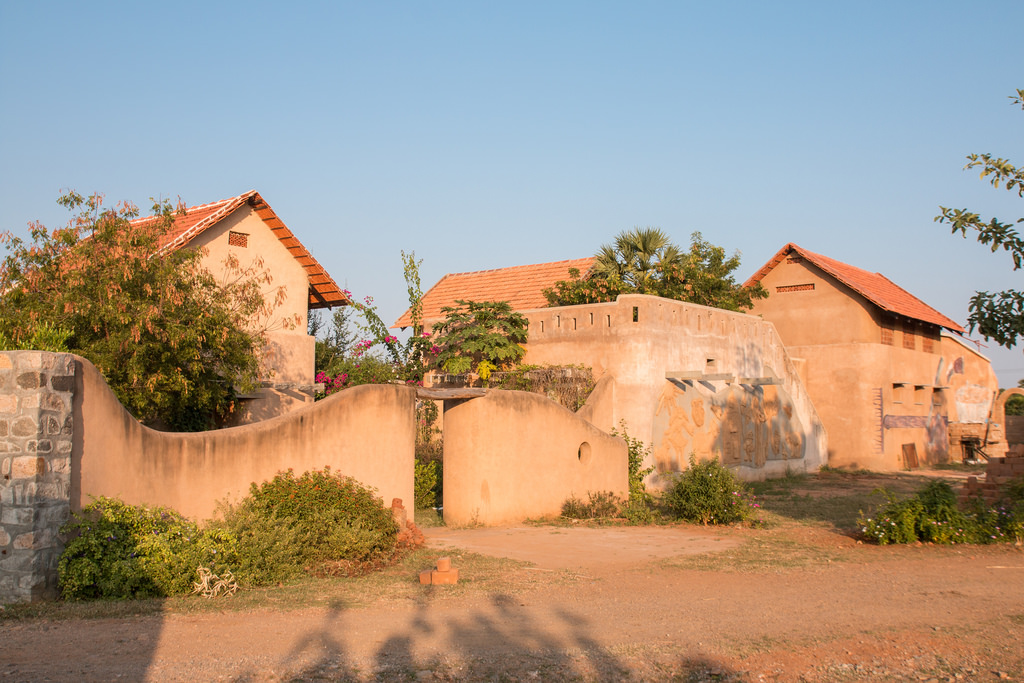
Every Friday and Saturday night, the volunteers of Students Sea Turtle Conservation Network (SSTCN) gather at Neelangarai beach at around 11pm to begin their 7 km walk to Besant Nagar beach. A voluntary group comprising mainly students, SSTCN has been working on the beaches of Chennai since 1987, trying to conserve and create awareness about the endangered Olive Ridley turtle.
For most of the young volunteers who participate in these turtle walks, ’Arun Anna’ is a familiar name. A senior member in the SSTCN team, Arun Venkataramanan has led hundreds of walks through the years.
This engineer-turned-environmentalist is also the co-founder of The Forest Way, a nature conservation NGO, and Marudam Farm School, an alternative school, in Thiruvannamalai in Tamil Nadu.

Photo Source: Peter Steward
Eight years ago, in 2009, Arun and his wife Poornima left the city life of Chennai behind and moved south to Tiruvannamalai, to start Marudam. A qualified engineer who went on to pursue a BA and BEd to become a teacher, Arun used to teach Environment Education at Chennai’s Krishnamurti Foundation School. Also a teacher, Poornima used to work at the Theosophical Society’s Olcott Memorial School in the city.
The idea for an alternative, inclusive school that focused on sustainable living was born when UK-based couple Govinda and Leela came to Tiruvannamalai for an afforestation project. The two invited Arun to help them start The Forest Way, an NGO that would work to plant and protect trees, and Marudam, a farm school they wanted to start on donated land.
The first challenge that the two couples faced was transforming the land, then a rock-strewn yard with sparse tree cover, into a clean and green space. Along with a handful of volunteers, they began planting countless trees and protecting the existing ones from forest fires. Gradually, vegetation began returning to the initially dusty land.
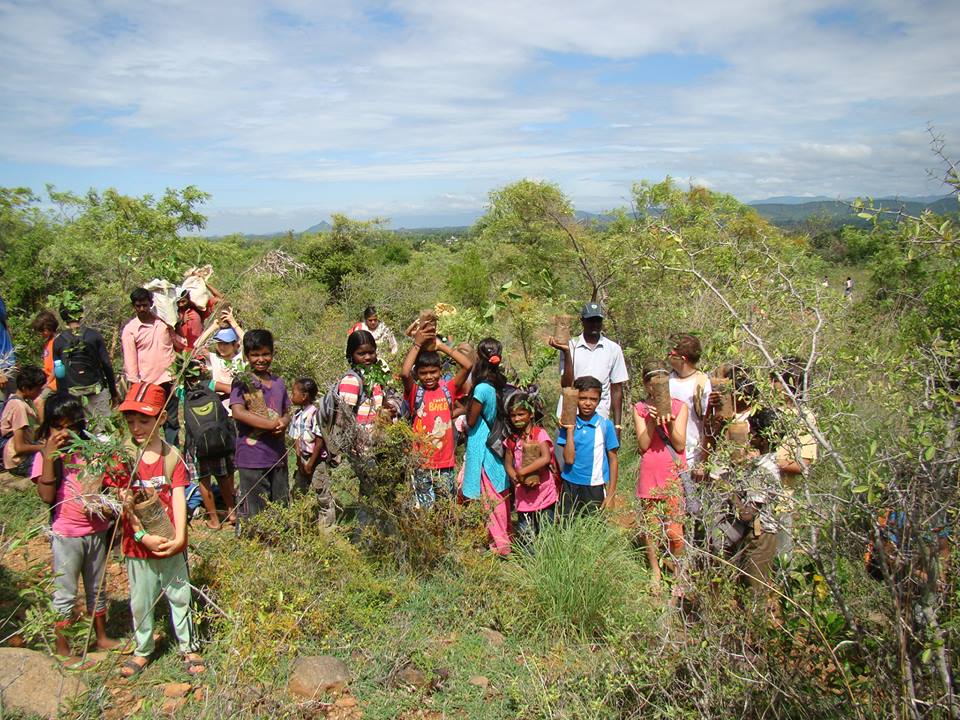
Photo Source
Next, a school building was built with an adjoining organic farm, a sapling nursery and a playground with handcrafted equipment. In 2009, the school started operations as Thiruvannamalai Learning Centre with 20 students in the first year. Back then, there were only about six to seven teachers and two families living at the farm.
As other volunteers joined the small community, other simple, eco-friendly and cost-effective facilities were added to the school. In 2011, the school was renamed Marudam Farm School and in 2012, it got formal recognition from the Board of Elementary Education to run the school as a primary school up to class 5.
Since inclusiveness was the founding principle of Marudam (which translates to farmland in Tamil), the school has always welcomed students from varying backgrounds. While most of the school’s children belong to the Tiruvannamalai village, there are others from distant Indian cities and foreign countries too. The school also welcomes children with learning difficulties and allows families to pay whatever fee they can afford, with volunteers and sponsors pitching in with the rest.
Marudam also follows a principle of alternative education that encourages children to be curious, while helping them learn at their own pace.
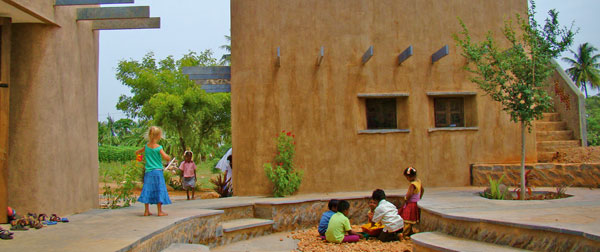
Photo Source
Towards this aim, the lessons at Marudam have been kept bilingual and flexible, with importance equal to conventional academics being given to skills of communication, investigation and practical knowledge.
Much of the teaching at Marudam is done through a continually evolving curriculum and projects that connect the children directly to nature and the community that surrounds them. For instance, mathematics is taught through pottery, baking, or even goat-rearing, depending on whatever strikes a chord with the children. Subjects like farming, tailoring, gardening, composting, carpentry and cooking are also taught.
Each week, the students climb up the nearby Arunachala hill to spend a quiet morning amidst nature. On returning, they spend time on the organic farm, learning as they work. Thursdays are movie days and at least once every year, all the students of Marudam come together to write and perform in their own theatre production.
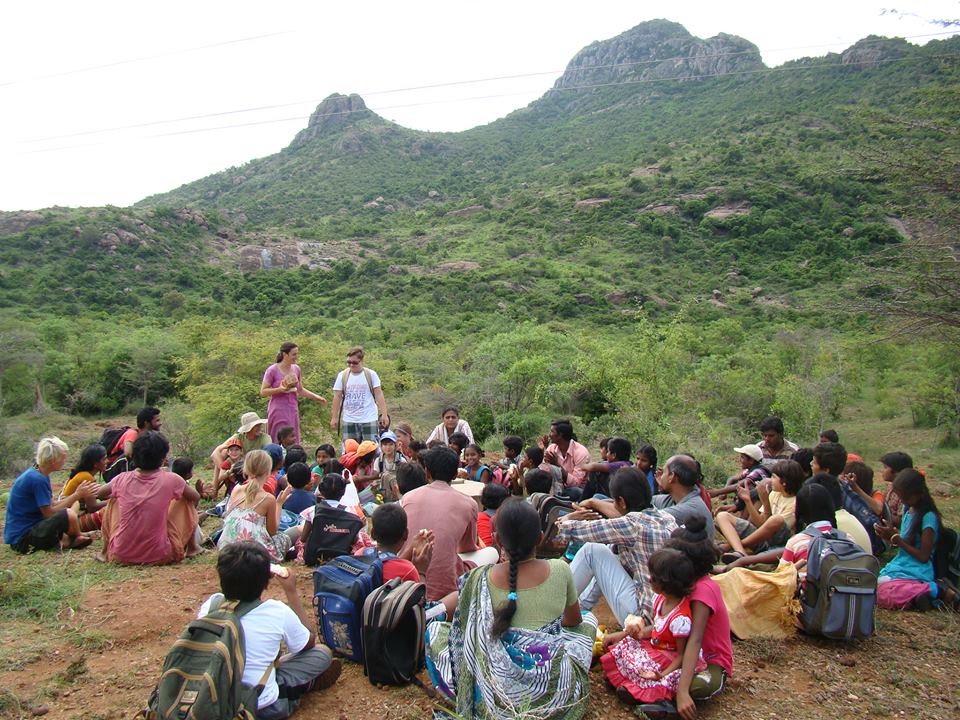
Photo Source
Under Arun’s guidance, the kids also go on turtle conservation walks on Chennai’s beaches, interact with the forest tribes of the nearby Javadi hills and visit Wayanad to learn more about rainforests. Interestingly, the students also get to decide whether they want to appear for examinations and if they do, which board they want to write for.
Marudam also grows 85% of the school’s food requirement on its organic farm, including grains, oilseeds, pulses, millets, fruits and vegetables. Families start their day early, tending to the campus farm and vegetable gardens. The school children also participate in all farm activities, from mulching to thrashing the harvested paddy. The urine and dung of the seven cows that live on the farm (in addition to four dogs, two cats and countless birds) is used to produce manure and biogas.
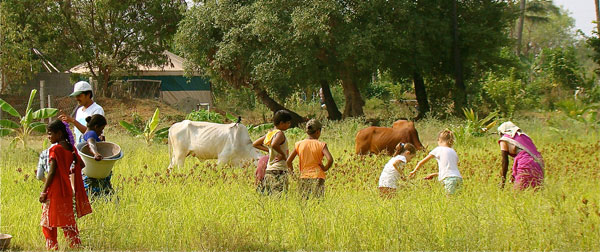
Photo Source
A place that embodies the meaning of sustainable living, today Marudam is home to 5 families, 23 teachers and 70 children, all of whom have grown to love it deeply. Initiatives like these could go a long way in changing the way India’s next generation incorporate nature into their daily lives.
To contact Marudam, click here.
Also Read: This Man Left the Chaos of City Life Behind to Build an Organic Village in Kerala
Like this story? Or have something to share? Write to us: [email protected], or connect with us on Facebook and Twitter.
NEW: Click here to get positive news on WhatsApp!
If you found our stories insightful, informative, or even just enjoyable, we invite you to consider making a voluntary payment to support the work we do at The Better India. Your contribution helps us continue producing quality content that educates, inspires, and drives positive change.
Choose one of the payment options below for your contribution-
By paying for the stories you value, you directly contribute to sustaining our efforts focused on making a difference in the world. Together, let’s ensure that impactful stories continue to be told and shared, enriching lives and communities alike.
Thank you for your support. Here are some frequently asked questions you might find helpful to know why you are contributing?


This story made me
-
97
-
121
-
89
-
167













